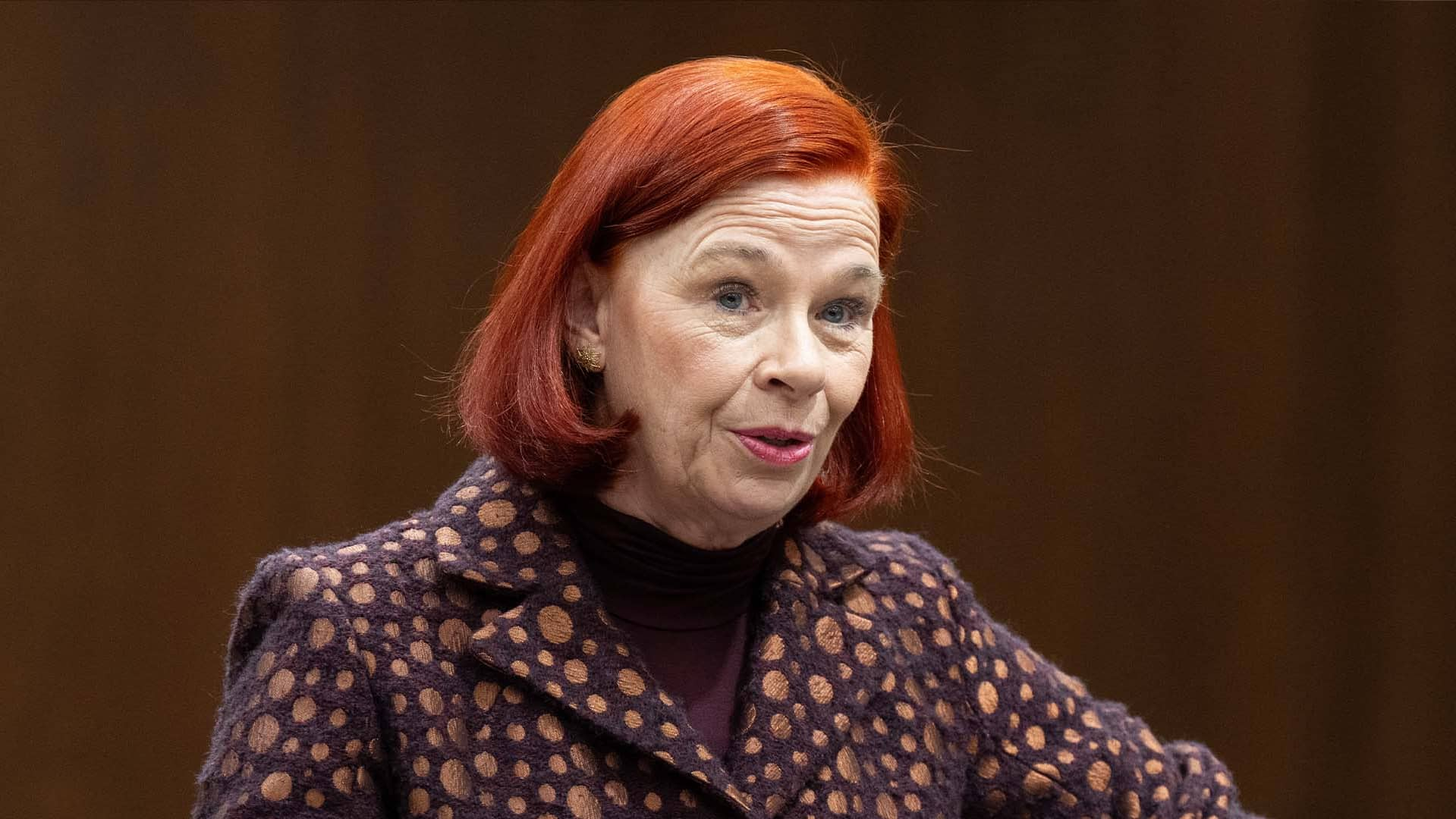The federal government is upping its funding for the CBC and Radio-Canada, easing the financial strain on the public broadcaster and the need for major job cuts and programming reductions this year.
In the 2024-25 federal budget released Tuesday, an additional $42 million had been allotted for news and entertainment programming — which CBC/Radio-Canada president and CEO Catherine Tait said is “welcome news.”
“This investment, together with the steps we have taken since December, means we will be able to stabilize our operations, preserve jobs, and continue to invest in programs and services,” Tait said in a statement.
Last fall, CBC/Radio-Canada forecast $125 million in financial pressures for the 2024–2025 fiscal year, announcing plans to slash $40 million from its production budget and cut approximately 800 jobs — a 10 per cent reduction of its workforce — including 250 each from CBC and Radio-Canada.
Prior to Tuesday’s budget announcement, CBC/Radio-Canada had already laid off 141 employees and cut 205 vacant positions.
Although CBC/Radio-Canada said in its statement that the one-year budget boost will help the corporation “address its remaining forecast shortfall and balance its budget without significant additional reductions this year,” spokesperson Leon Mar did not confirm if the increase would eliminate the risk of layoffs entirely.
“We will update our financial plans based on the information now available to us,” Mar said in an email.
Members of Parliament at the House Heritage Committee grilled CBC/Radio-Canada president Catherine Tait about looming layoffs and executive bonuses. In December 2023, the Crown corporation announced it would cut approximately 600 jobs and leave 200 vacancies unfilled.
Decision on bonuses still to come
It’s unclear at this time if the budget increase means CBC/Radio-Canada management will receive annual bonuses — performance-based incentive pay that is a part of compensation agreements for some 1,100 employees.
Mar said any decisions about performance pay are made in June, after the end of the fiscal year.
The bonuses were a point of contention for parliamentarians who grilled Tait before a House of Commons heritage committee in January, following the announcement of planned job cuts.
Tait told the committee the bonus payout in 2022-23 was $14.9 million.
“I can understand people’s concerns,” Tait told the committee. “It’s an extremely small number and we need to keep our talented managers — it’s not just journalists, although we absolutely honour and support their work.”
She said the performance pay was a relatively small amount compared to the approximately $900 million it pays out every year in salaries for all employees.
Liberal MP Michael Coteau asked CBC president Catherine Tait whether she would reconsider performance payments, adding bonuses should only be ‘given when times are good.’
CEO says CBC ‘chronically underfunded’
Documents the Treasury Board of Canada released on Feb. 29 showed CBC would get an estimated $1.38-billion budget in 2024-25, up from an estimated $1.29 billion for 2023-24.
Government funding accounts for approximately 70 per cent of CBC/Radio-Canada’s budget, while the remainder of its funding comes from self-generated revenue including advertising.
According to its annual reports, CBC/Radio-Canada received $1.24 billion in federal funds in 2022 and $1.39 billion in 2021.
Tait, whose term at the helm of Crown corporation comes to an end at the start of next year, told the heritage committee CBC/Radio-Canada is chronically underfunded.
“At $33 per Canadian — a dime a day — CBC/Radio-Canada is one of the worst-funded public broadcasters in the world, with four times less funding than the U.K. and France and eight times less than Germany,” Tait said. “Until that situation changes, we must continue to manage with what we have and do our very best to stretch limited resources to meet our mandate.”
The increase in funding in the 2024-25 budget comes as the government aims to redefine the role of the public broadcaster, something Heritage Minister Pascale St-Onge said late last year she would like to see completed before the next federal election.
Ideas53:59The Long Conversation: Why public broadcasting is more crucial than ever
In a public talk she gave in 2018, journalist Sue Gardner argues that we’ve returned to the same set of ominous social conditions which led to the creation of public broadcasting in the first place — and that now is the time to recommit to public service journalism.
Funding for local, not-for-profit media
CBC/Radio-Canada is not the only media outlet to receive financial support in the 2024-25 budget.
The budget set aside $58.8 million over three years for the Local Journalism Initiative, created by the Canadian Heritage ministry in 2019 to support journalism for underserved communities across the country.
The government is also proposing $15 million in support, over two years, for other public interest programming such as Aboriginal Peoples Television Network (APTN), Accessible Media Inc. (AMI), Quebec’s ICI Television and TV5 Québec Canada. Of that, $5 million will support the requirements of the Cable Public Affairs Channel (CPAC).




